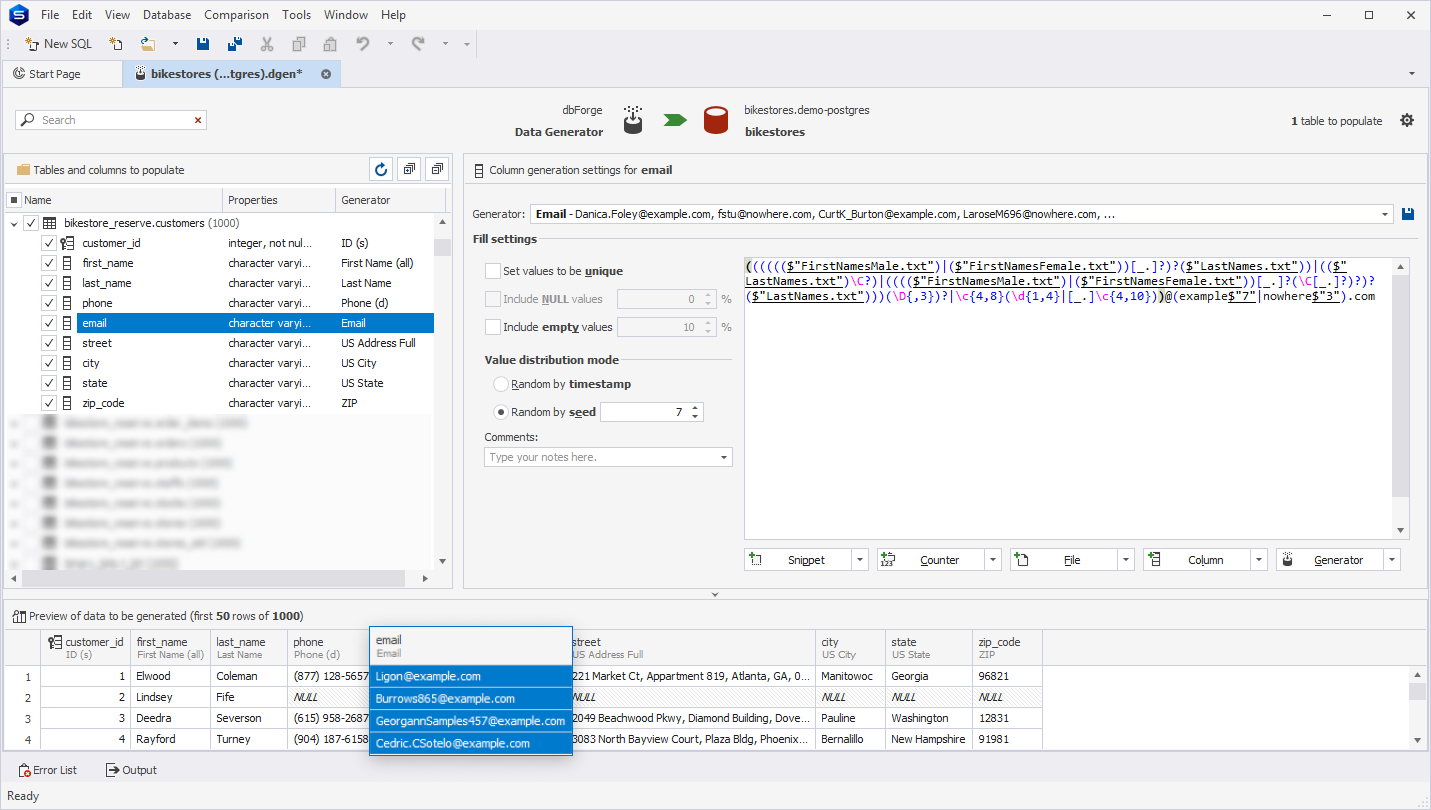Email generator
The Email generator creates valid email addresses based on a specific format or structure, often using predefined patterns or templates. This generator can create email addresses for testing purposes, data population, or simulation, and is frequently used in databases, testing environments, or data migration tasks.
Generator properties
The table provides key details about the generator, including the short name, sample of the generated data, the supported data types, and whether it is specific to a particular country.
| Short name | Example of generated data | Data type matching | Country-specific |
|---|---|---|---|
| [email protected], [email protected], … | character varying character text |
Default |
Matching rules
The generator can be assigned to a column that matches any of the following rules:
- The column name ends with ‘Email’ or ‘Mail’, preceded by any or no characters, regardless of the table name.
- The column name is ‘SendTo’, ‘CC’, or ‘BCC’, regardless of the table name.
Configure additional options
The generator produces data based on a regular expression. Since it is built on the RegExp generator, see Regular Expression generator to customize settings and understand the correct usage of syntax.
The Text box displays the following .txt files with the default path:
C:\Users\Public\Documents\Devart\dbForge Studio for PostgreSQL\Data Generators\FirstNamesMale.txtC:\Users\Public\Documents\Devart\dbForge Studio for PostgreSQL\Data Generators\FirstNamesFemale.txtC:\Users\Public\Documents\Devart\dbForge Studio for PostgreSQL\Data Generators\LastNames.txt
Preview of the column data generated by the Email generator
